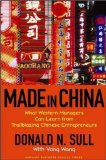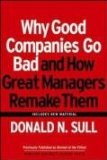Browse Executive Interviews
Subject wise
- 21st Century Organization
- Blue Ocean Strategy
- Bottom of the Pyramid
- Brands and Branding
- Building Ethical Organizations
- Building High Performance Teams
- Business Model Innovation
- Business Process Outsourcing ( BPO )
- Business Schools and Business Ethics

- Change Management
- Co-Creation
- Collaboration
- Competing for Customers
- Corporate Entrepreneurship
- Corporate Social Responsibility ( CSR )
- Customer Relationship Management ( CRM )
- Decision Making
- Emerging Markets
- Executive Development
- Family Business
- Global Economy and Global Managers
- Global Strategy
- Government and Business
- Indian IT Industry
- Innovation
- Knowledge Management
- Knowledge Process Outsourcing ( KPO )
- Leadership
- Learning Organizations
- Level 5 Leadership
- Managing Complexity
- Managing Downturn without Downsizing
- Managing Troubled Times
- Marketing in a Downturn
- Midlife Crisis
- Multicultural Teams
- Organizational Loyalty
- Private Labels
- Rebranding Strategies of Bank of Baroda
- Reverse Innovation
- Social Cause Marketing
- Social Entrepreneurship

- Social Networking

- Staying on Top, Always
- Steve Jobs
- Strategy Execution
- Talent Management
- The China Factor
- The Making of a CEO
- Virtual World
- Why Good Companies Go Bad
- Women Entrepreneurs
- Women Executives
Publishing Year
Publishing Year
Interview with Donald N Sull on Why Good Companies Go BadJanuary 2007 - By Dr. Nagendra V Chowdary |
|||||||||||||

Donald N Sull is an Associate Professor of Management Practice at the London Business School, where he teaches electives on leading strategic transformation and driving strategic agility for growth. Sull has published four books, over 65 articles, book chapters and cases. Four of his six Harvard Business Review articles have been bestsellers. His most recent book Made in China: What Western Managers can Learn from Trail-blazing Chinese Entrepreneurs (Harvard Business School Press, 2005) was named one of the top eight business books of 2005 by
the Faculty Director of the Global Business Consortium, an executive education program designed to accelerate multinationals' ability to create and sustain radical performance improvement which includes Oracle, Emirates Airline, Mars/Masterfood, Standard Chartered Bank, SKF and BT. He is a core faculty member on the London Business School's Senior Executive Programme, and teaches an open program on driving strategic agility. He has consulted to multinationals around the world including Procter & Gamble, Royal Bank of Canada, Standard Chartered Bank, Roche, Nokia, Samsung Electronics, Danone, Pricewaterhouse - Coopers, Millennium Pharmaceuticals, ACNielsen, Compaq Computer, Ericsson, TDC Mobile, Credit Suisse First Boston, and LG Electronics, among others. Sull has received his AB, MBA, and doctorate from Harvard University, and served as a professor of entrepreneurship at the Harvard Business School. Prior to academia, Sull worked as a consultant with McKinsey & Company, and as a management-investor with the leveraged buyout firm Clayton, Dubilier & Rice. He remains active in private equity as an advisor and investor. He can also be reached at dsull@london.edu |
|||||||||||||
1.
The Good, the Bad and the Ugly Case Study
| |||||||||||||
Related Links
Books by Donald N Sull
-

Made In China: What Western Managers Can Learn from Trailblazing Chinese Entrepreneurs -

Revival of the Fittest: Why Good Companies Go Bad and How Great Managers Remake Them 
Why Good Companies Go Bad And How Great Managers Remake Them
Donald N Sull's weblinks
Related Case Studies
- Dell Business Model (B): A Case for Business Model Innovation
- Dell Business Model (A): Strategic Inflection Points in the PC Industry
- Lowe's, AMD, Target et al: The Second-mover Advantage?
- Ronda 'Water Management' Experiment:Worldwater (Philippines), Inc.
- Bangalore : On the Verge of being ‘Bangalored'
- Corrado Passera Restructuring Poste Italiane and Banca Intesa: The Leadership Style of the Corporate Savior